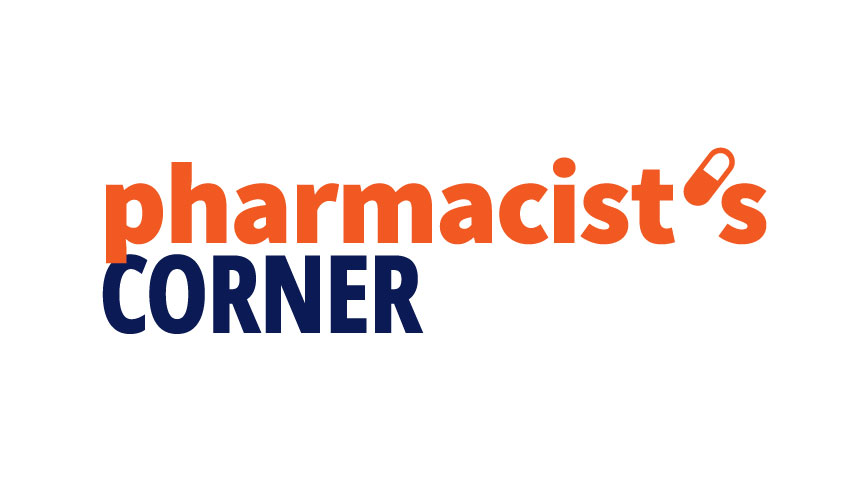While controlled substances are typically the focus in drug diversion discussions, several non-controlled medications also pose significant risks for misuse and abuse.
Due to their unscheduled status, these drugs are often subject to less stringent monitoring, despite growing evidence of non-therapeutic use, dependency, and harm. Many of these medications are routinely stocked and administered in veterinary clinics, and ongoing misuse could result in future scheduling or increased regulatory oversight.
Non-controlled drugs with known/emerging potential for misuse or abuse include:
Gabapentin
Gabapentin is widely used in veterinary medicine as an anxiolytic, analgesic for neuropathic pain, and anticonvulsant. In humans, it is increasingly misused for its euphoric, marijuana-like effects and increased sociability. It has also been reported as a cutting agent in illicit heroin.
Gabapentin may be known on the street as “johnnies,” “gabas,” or “gabbies.” Although not federally scheduled, gabapentin has potential for abuse and may cause CNS depression and respiratory compromise. This, while uncommon, is a major concern as it is often used with opioids and other illicit drugs that increase the risk of death.
- Schedule V in: AL, KY, MI, ND, TN, VA, WV
- Mandated reporting in: CT, DC, IN, KS, MA, MN, NE, NJ, OH, OR, UT, WY
Xylazine
Xylazine is a veterinary sedative and anesthetic, mainly used in large animals. Though not approved for human use, it is frequently abused as a tranquilizer—known on the street as “tranq.” When mixed with drugs like fentanyl, heroin, or cocaine, it significantly increases the risk of fatal overdose. In 2023, the White House declared xylazine an emerging public health threat.
- Scheduled in: PA, WV, FL, NJ, DE, OH
- Pending legislation in: Multiple states, including IL
Propofol
Propofol is an injectable anesthetic used in veterinary and human medicine. It has been widely abused, especially by healthcare professionals, for its rapid onset of euphoria, dizziness, and intoxication-like effects. Propofol does not have a widely recognized street name, and its abuse gained national attention following Michael Jackson’s death. Although fospropofol (an oral prodrug) is Schedule IV federally, propofol is not scheduled due to poor oral bioavailability.
- Scheduled in: AL, GA, ND
- Tightly regulated in hospitals and institutions nationwide
While medications are prescribed with the intent to treat our veterinary patients, it is important to remain aware of the potential for misuse. By fostering a team-based approach, staff can actively monitor signs of diversion and ensure medications are dispensed, administered, and wasted appropriately.
Signs of Diversion
Signs of possible diversion from clients include: “vet shopping” – visiting multiple clinics to obtain medications; bringing in new or unfamiliar animals with vague histories or questionable injuries; requesting medications by name instead of describing symptoms; frequent requests for early refills or replacements for “lost” medications; and refusing diagnostic workup or physical exams but still asking for sedatives or pain relief.
Signs of possible diversion in the clinic or hospital include missing or incomplete logs for medications; unusual discrepancies in dispensing or waste; staff consistently handling certain medications without reason or offering to restock/prepare them alone; behavioral changes in staff such as confusion, mood shifts, frequent absences, or errors in documentation; and unsecured storage or casual handling of medications.
Promoting a culture of shared responsibility and vigilance helps protect patient safety and maintain the integrity of veterinary care.
By Sharon Huang, fourth-year pharmacy student, University of Illinois-Chicago
Resources
- American Animal Hospital Association. 8 veterinary drugs with human health hazards. https://www.aaha.org/newstat/publications/8-veterinary-drugs-with-human-health-hazards/
- American Pharmacists Association. Drugs of abuse and misuse: Focus on noncontrolled substances. Published 2019. https://www.pharmacist.com/DesktopModules/EasyDNNNews/DocumentDownload.ashx?portal id=0&moduleid=3675&articleid=2375&documentid=746
- Centers for Disease Control and Prevention. What you should know about xylazine. https://www.cdc.gov/overdose-prevention/about/what-you-should-know-about-xylazine.html
- DVM360. Xylazine: What’s next? https://www.dvm360.com/view/xylazine-what-s-next-
- Illinois General Assembly. Bill HB3567: Schedules xylazine as a Schedule III controlled substance. https://www.billtrack50.com/billdetail/1769865
- Kim JT, Park HP, Jeong SM, et al. Propofol abuse and dependence: A clinical update. Korean J Anesthesiol. 2018;71(6):421–429. https://pmc.ncbi.nlm.nih.gov/articles/PMC5836055/
- Plumb DC. Gabapentin. In: Plumb’s Veterinary Drugs. Wiley-Blackwell; 2025. https://app.plumbs.com/drug/CSJtfV8dnfPROD
- Plumb DC. Propofol. In: Plumb’s Veterinary Drugs. Wiley-Blackwell; 2025. https://app.plumbs.com/drug/RJ86WnI9L8PROD
- Plumb DC. Xylazine. In: Plumb’s Veterinary Drugs. Wiley-Blackwell; 2025. https://app.plumbs.com/drug/zduyly3YdiPROD
- QuADA. Propofol in outpatient care: Management and safety. https://www.quada.org/en/standards-news-and-updates/propofol-outpatient
- Reeves RR, Ladner ME. Potentiation of the abuse potential of opioids with gabapentin or pregabalin. South Med J. 2012;105(1):38–39. https://pmc.ncbi.nlm.nih.gov/articles/PMC3404313/




